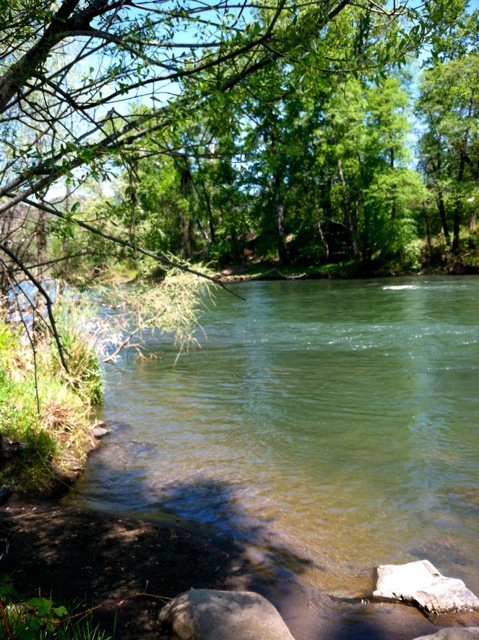Institutional Knowledge: A Bank of Wealth by KC McFerson
My Community Planning Workshop (CPW) team is working with two small Oregon communities to improve water quality in their jurisdictions – the City of Oakridge, on the Willamette River, and Gold Hill, on the Rogue River. Navigating a new area of planning, policy, and regulation can be a challenging task, especially for communities that are not familiar with the process. Luckily, cities collaborating with the Community Service Center (CSC) and Community Planning Workshop (CPW) can utilize a powerful tool: institutional knowledge.
Institutional knowledge means that current projects benefit from lessons learned in previous projects that are similar. CPW has built substantial institutional knowledge around improving water quality in small communities through the last few years. Recently, CPW worked on similar projects with other Oregon cities, including Shady Cove, Coburg, and Turner. The lessons from these prior experiences developed an institutional knowledge that brings a variety of benefits.
1. Benefits to service learning. Institutional knowledge gives a team working on a current project access to lessons learned from prior processes and projects. Seeing what was and was not effective in Shady Cove, Coburg, and Turner has helped my team research efficiently and build a stronger relationship with our steering committees. Ultimately, this results in a better process and final product that enriches learning.
2. Benefits to client city. A better process and product means a better result for the client city and a strengthened community. As a city, particularly a small one, tries to comply with state and federal water quality regulations, it faces many questions. Should it move forward on its own? Should it partner with a state agency? Should it do nothing and be penalized? Should it hire a consultant? And if it does hire a consultant to help it through the process, why should it? What’s the hook? The hook is institutional knowledge.
3. Benefits to the environment. A better process and product not only means a better result for the client city, but also a better result for the subject of the project. In this case, it means improved water quality in the Willamette and Rogue River Basins. The faster and more effectively we complete water quality projects, the faster the Willamette and Rogue Rivers become clean and healthy.
Institutional knowledge is vital for small Oregon communities trying hard to improve life for their citizens while complying with state and federal regulations. It allows us as service learners to make a meaningful contribution. And it creates a better end product, which is delivered with greater efficiency than before. But perhaps the greatest wealth accrued from institutional knowledge, in this case, is improved water quality in Oregon’s river basins. Take that to the bank…the riverbank.
More about the Community Planning Workshop(CPW)
